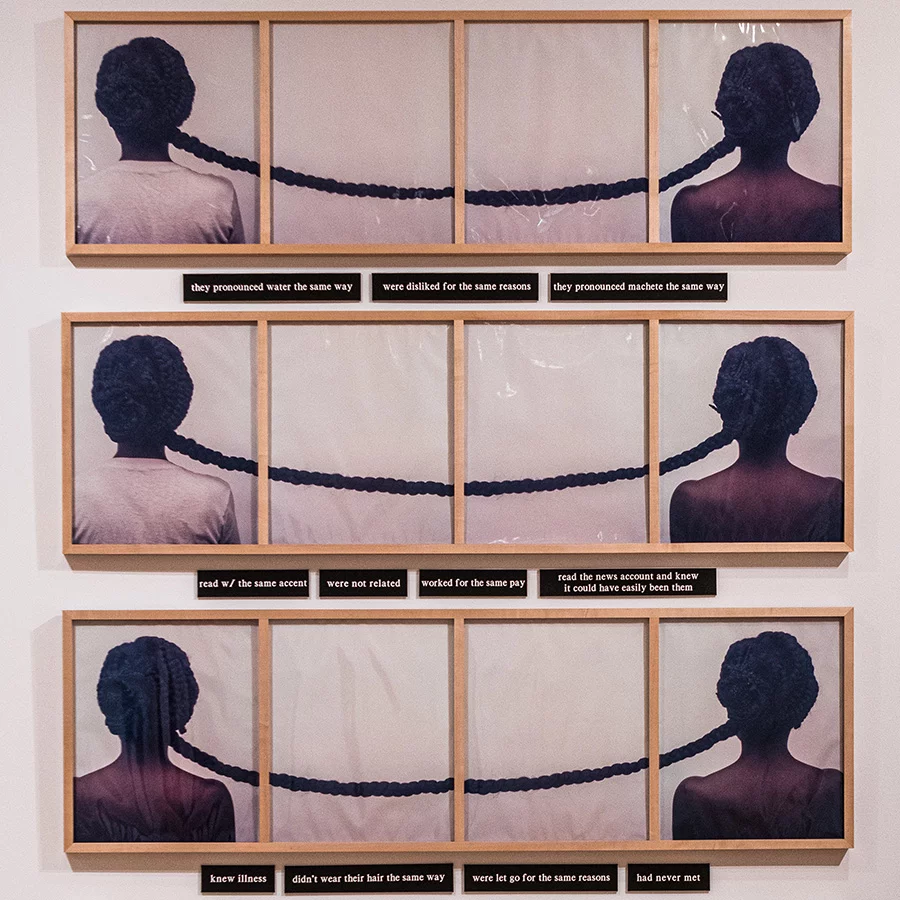Black women artists have encountered several challenges throughout history due to their color and gender. They have demonstrated incredible tenacity and determination in the face of obstacles given by the predominance of white male artists, making vital contributions to movements such as the Black Arts Movement, Harlem Revolution, Black Feminist Movement, and Civil Rights Movement.
The groundbreaking work of their predecessors, who defined how Black women artists are perceived and celebrated in the art world, served as inspiration for contemporary Black women artists. Artists like Alma Thomas, Lois Mailou Jones, Betye Saar, and Howardena Pindell have used cutting-edge ideas and techniques across a variety of mediums to explore topics connected to their cultural backgrounds and personal experiences. They have made a name for themselves as leaders, and their vision and insight have motivated countless others.
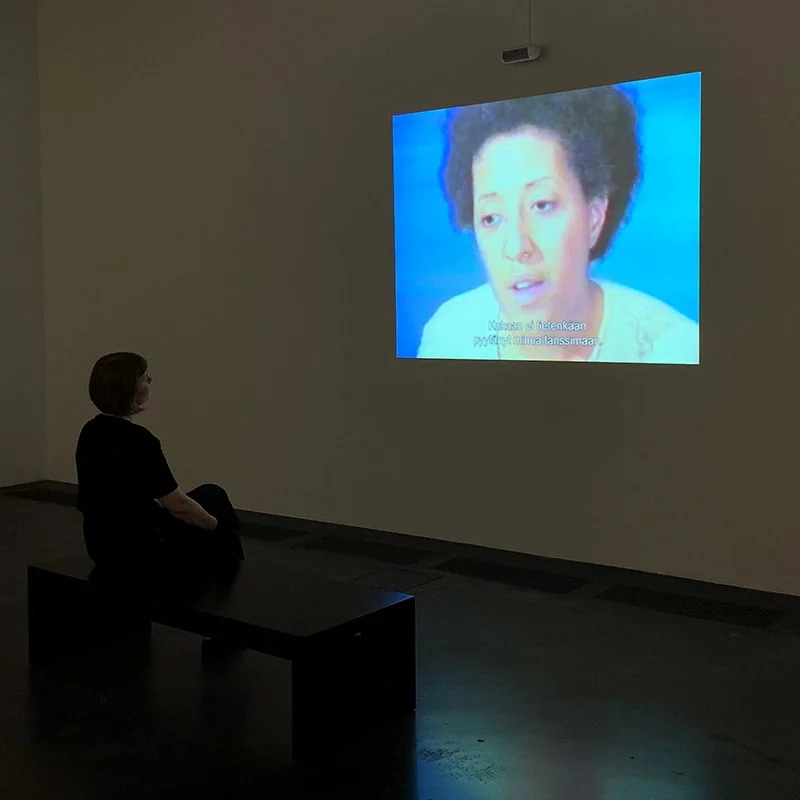
In the field of sculpture, Meta Vaux Warrick Fuller, Augusta Savage, Beulah Ecton Woodard, and Elizabeth Catlett are just a few examples of African American women sculptors who have utilized their work to illustrate the hardships and victories of Black existence. Themes like racial identity, social justice, and the human form are frequently explored in their sculptures, and they act as role models and educators for the next generation of Black women artists.
Black female artists have been able to establish their voices and claim their agency through their art, which has helped to create a more varied and inclusive art scene. In challenging predominant narratives and providing fresh perspectives on issues with representation and power, their work frequently covers intersectional experiences of identity, particularly those related to race, gender, sexuality, and class.
Contemporary Black Women Artists
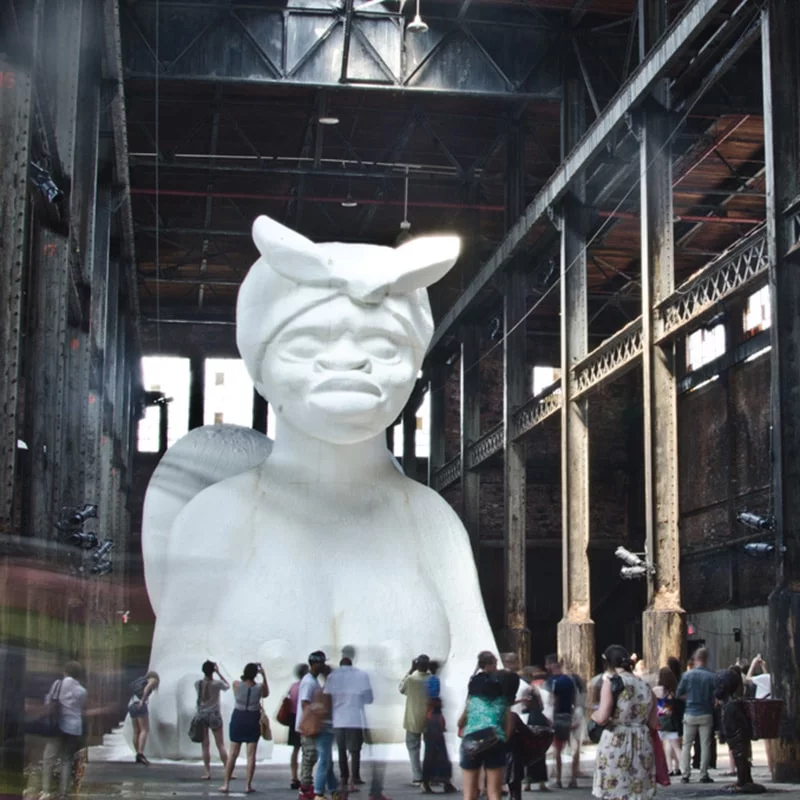
Kara Walker
Kara Walker is one of the most famous Black female painters of our time well-known for her black and white works that portray the grim imagery of racist history. Her artwork has been exhibited in renowned institutions across the globe.
In Brooklyn’s Domino Sugar Factory (2014), Walker displayed a ground-breaking conceptual sculpture titled “A Subtlety.” The enormous installation, which used 80 tons of sugar, featured a sphinx with a Southern Mammy archetype. This 75-feet long monumental artwork which commented on the racist trade history attracted a lot of interest and made the artist a public figure.
Tschabalala Self
An accomplished young Black woman artist, Tschabalala Self was born in Harlem in 1990. She uses figurative painting to depict Black bodies, and her work is inspired by the music videos she grew up with, when she first noticed how Black bodies are frequently depicted as “hip-hop honeys” in popular culture.
Self’s colorful works question accepted notions of representation and ingeniously blend paint and fabric. She has exhibited her art in prestigious museums, such as the New Museum in New York and the Hammer Museum in Los Angeles.
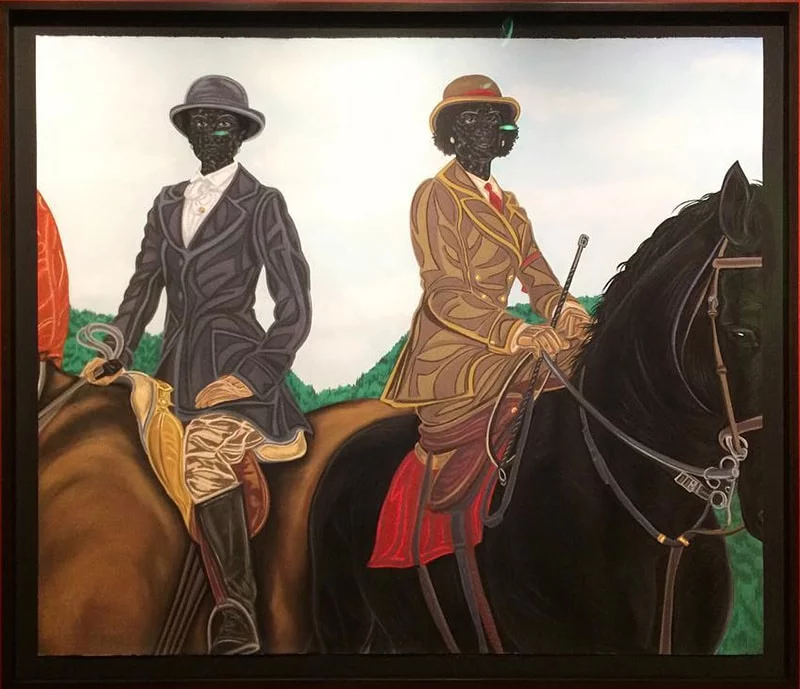
Toyin Ojih Odutola
Nigerian-American artist Toyin Ojih Odutola, who was born in 1985, is another Black female painter renowned for her distinctive portraiture that tackles the intricacies of identity and representation. She frequently depicts Black people in her portraiture in vulnerable or intimate positions, and she infuses depth and richness to her paintings by using elaborate patterns and textures.
Themes of race, gender, and power are regularly explored in Odutola’s work, which is firmly anchored in both her own experiences and those of the Black diaspora. She has had her work displayed in several galleries and museums all over the world, and she has won a number of prestigious awards and grants, such as the Joan Mitchell Foundation Painters & Sculptors Award and the United States Artist Fellowship.
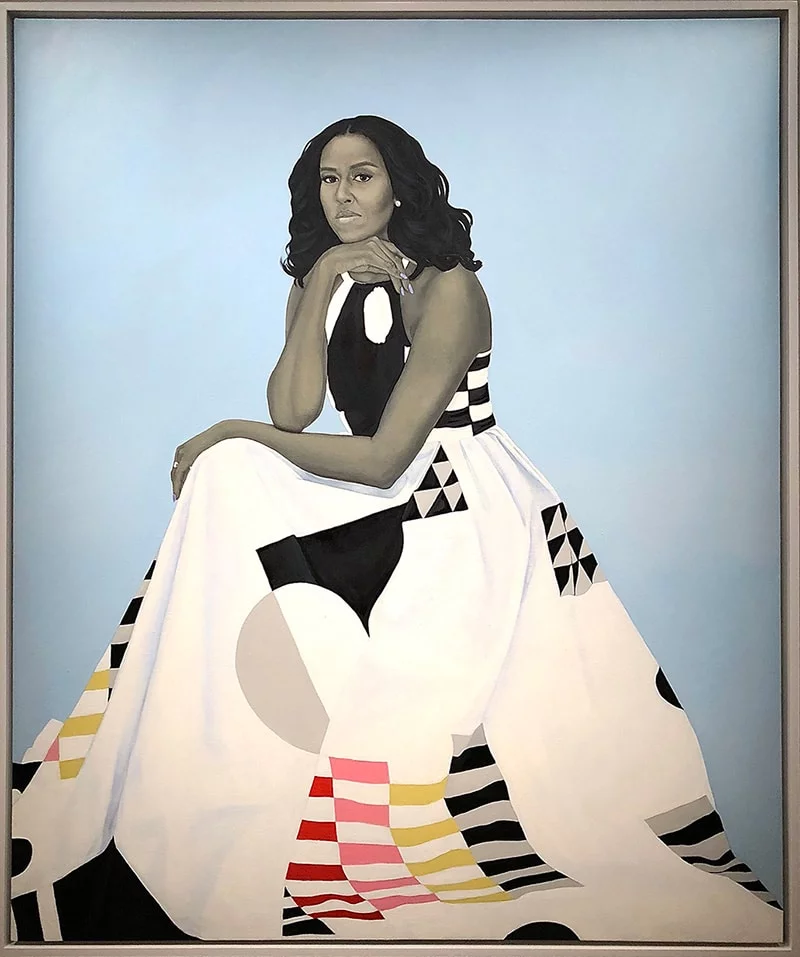
Amy Sherald
Amy Sherald attracted a great deal of interest from institutions and collectors after she painted a portrait of the former First Lady Michelle Obama in 2018 as commissioned by the National Portrait Gallery.
Sherald’s distinctive aesthetic makes sparing use of color and frequently combines vibrant tones with greys to depict Black experiences. Her painting of Breonna Taylor, has been dubbed the most significant picture of the twenty-first century by some. The Speed Art Museum in Kentucky and the Smithsonian National Museum of African American History and Culture in Washington, D.C. acquired this painting.
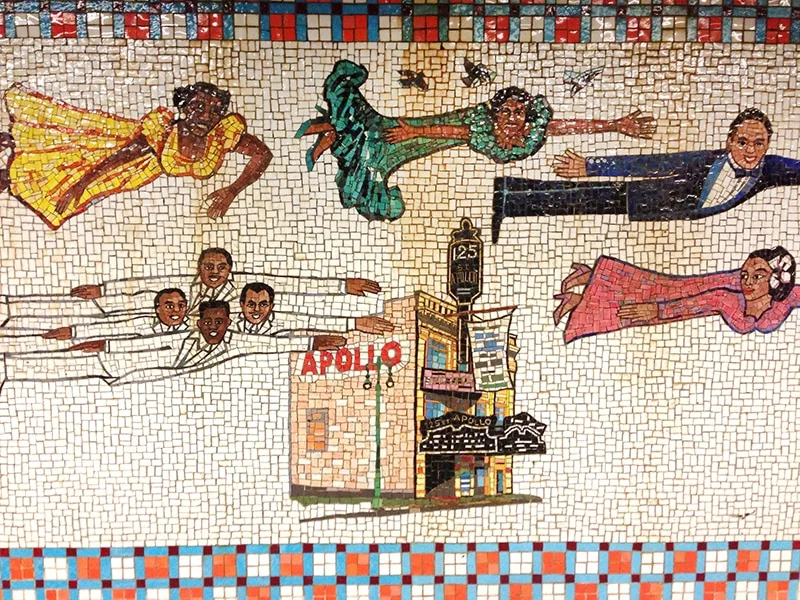
Faith Ringgold
A well-known artist whose body of work spans multiple decades and mediums is Faith Ringgold. Her vivid and colorful story quilts, which combine conventional quilting methods with painting and storytelling, are undoubtedly easily recognizable.
Her writing also frequently examines issues pertaining to the African American experience, such as racism, civil rights, and women’s place in society. In addition to making art, Ringgold is a fervent supporter of arts education and has been a key voice in highlighting the value of art programs in schools.
She has received various accolades for her services to the art world, including a National Medal of Arts in 2020, which is indicative of the significant influence her work has had on the field of contemporary art.
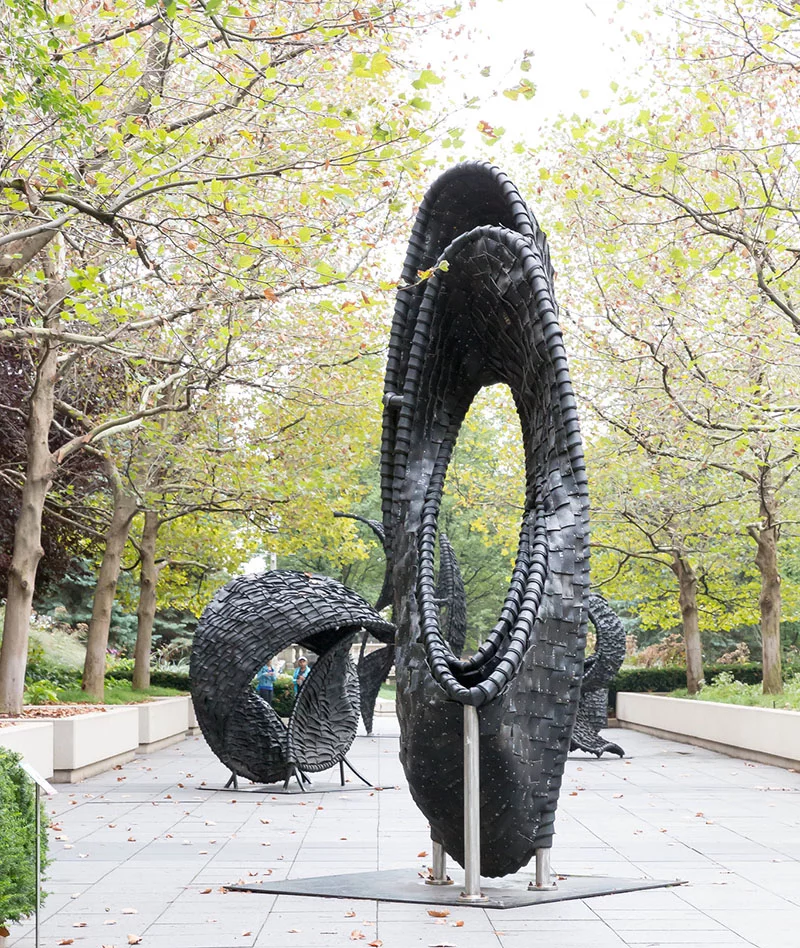
Chakaia Booker
The monumental and abstract sculptures created by Chakaia Booker, who is known for using recycled rubber tires in a novel way, have become widely recognized within the art world. Numerous outdoor sites and public spaces feature her artwork.
By stacking rubber tires together, the Black female sculpture artist, creates organic and flowing forms with, rich textures. She obtains her supplies from junkyards and tire shops in the area, reworking them into stunning artworks that are also respectful of the environment.
Mass Transit, one of her most well-known pieces, situated outside a Brooklyn subway station along the Harlem River, was commissioned by the Metropolitan Transportation Authority in 2001. The towering, twisting mass of tires looks to be in motion all the time, reflecting the vitality and energy of the nearby urban landscape.
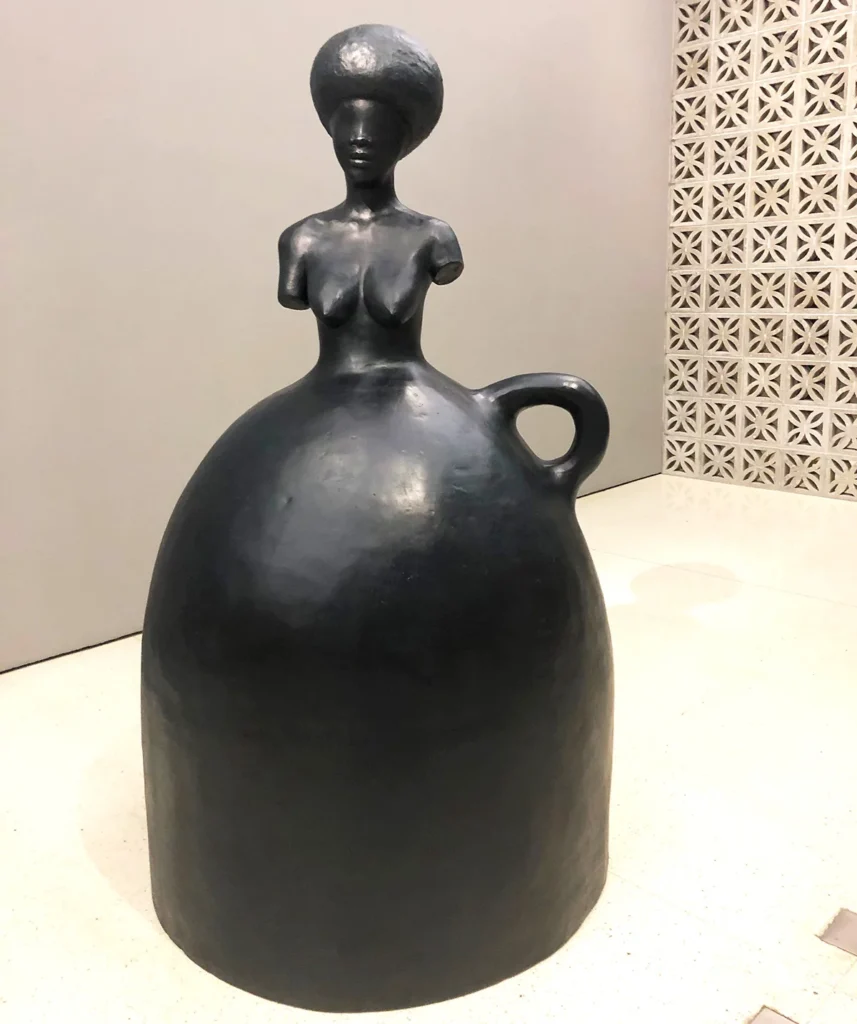
Simone Leigh
American artist Simone Leigh, who was born in 1967, emphasizes the everyday experiences of Black women in her work. Her sculptures, which reflect the beauty and tenacity of Black women’s faces and bodies, blend both contemporary architecture and cultural iconography.
Brick House, a sizable sculpture commissioned for the High Line in New York City, is one of her most famed works. A testament to Black femininity and strength, this powerful bronze sculpture of a Black lady with a skirt constructed of bricks in the color of clay, combines aspects of West African and European architecture with contemporary design.
Leigh won the Silver Lion prize for best national pavilion at the Venice Biennale, where she represented the United States.
Nnenna Okore
Nnenna Okore frequently employs organic materials to produce abstract forms in her sculptures, which are mostly influenced by the beauty of the natural world. Her sculptures are usually constructed using a time-consuming method that involves weaving, tying, and layering organic materials.
Onwa, one of Okore’s most stunning pieces, is a collection of geometric shapes fashioned from burlap, paper, and rope that resemble the moon’s phases. Her sculptures encourage viewers to ponder the majesty of nature and how we may use the things around us to achieve beauty.
Critical acclaim for Okore’s work’s innovative material use and celebration of nature has led to its selection in various international exhibitions.
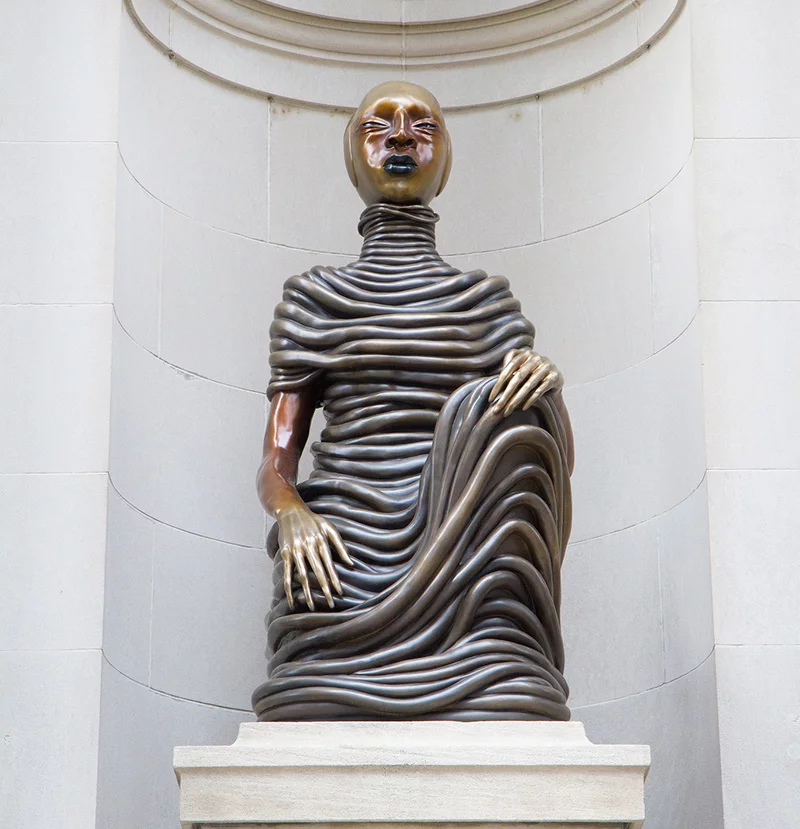
Wangechi Mutu
Wangechi Mutu is widely regarded for her exceptional talent at fusing several mediums and methods, such as collage, sculpture, painting, and video, in her works. The layered and textured nature of her work is enhanced by the frequent inclusion of found things in her compositions, including plastic toys, magazine cutouts, and other trash.
With figures that frequently cross the boundaries between human and animal forms, the famous Black woman artist’s sculptures are renowned for their elaborate and meticulous design. Mutu investigates the complexity of identity, cultural hybridity, and the effects of colonialism on African cultures via her art.
In addition to sculptures, Mutu has produced a number of extensive installations, such as My Dirty Little Paradise, which was displayed at the Deutsche Guggenheim in Berlin, and A Wonderful Voyage, which was displayed at the Brooklyn Museum.
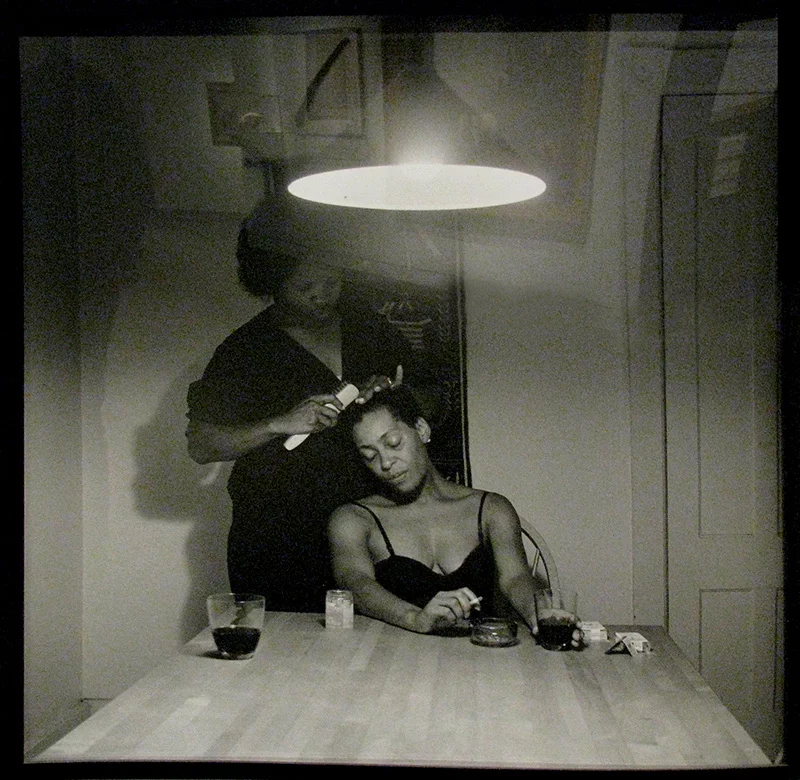
Carrie Mae Weems
The photography art of Carrie Mae Weems has a significant impact on academia, social justice movements, and the art world. Weems has created video and performance art that explore related ideas of identity and representation, in addition to her iconic photography.
One of Weems’ most famous works, “The Kitchen Table Series” from 1990, delves into gender and racial roles and expectations within the household and the society. Carrie Mae Weems won the 2023 Hasselblad Award, named after the Swedish camera inventor Victor Hasselblad. Weems became the first Black female photographer to claim the highly prestigious “significant achievement in photography” award.
Weems has also been a proponent of arts education and has started a number of initiatives to encourage it among young people, particularly in marginalized neighborhoods. She has won many other honors for her art, including the National Medal of Arts, the BET Honors Visual Arts Award, and a MacArthur “Genius” Grant.
Lorna Simpson
Themes of history and memory are frequently explored in Lorna Simpson‘s photography, especially in reference to Black lives. She makes collages that contradict the historical canon using materials and images from archives.
Her work explores how Black women are absent from historical narratives and how memory and history may be used to sustain oppressive power structures. For instance, in her 1991 piece Stereo Styles, Simpson made a series of collages that explored concepts of beauty, identity, and cultural stereotypes using old pictures of African American women. In these collages, Simpson draws attention to the ways that Black women have been eliminated from popular visual culture as well as being objectified.
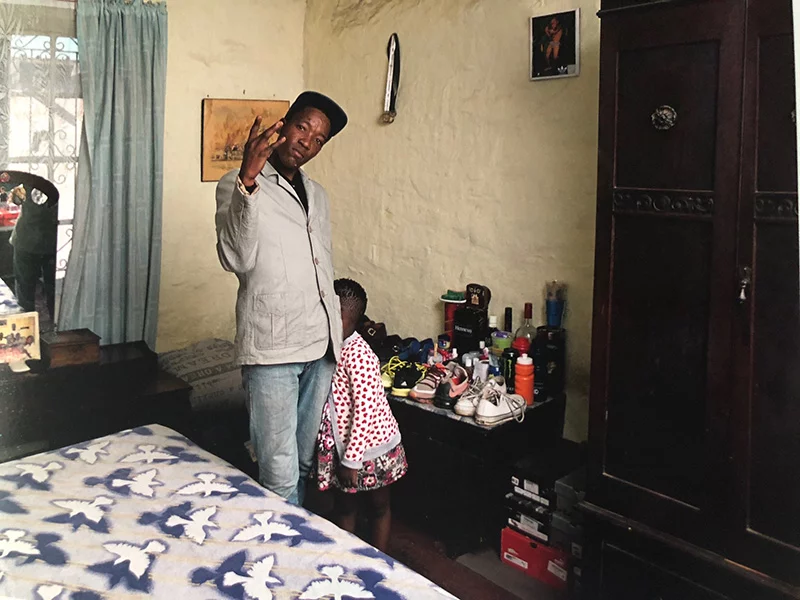
Deana Lawson
The work of another prominent Black female photography artist, Deana Lawson, is highly collaborative, with a focus on establishing connections with her subjects and their communities. Her photographs frequently include personal items and nuances that offer insights into her subjects’ lives. She works closely with them to produce images that reflect their viewpoints and experiences.
Lawson wants to challenge how blackness and other oppressed identities are understood and portrayed in contemporary culture while also providing a platform for the underrepresented. Lawson’s images have gained significant critical recognition for their potent and nuanced depictions of identity and experience. They have been displayed in numerous galleries and museums all over the world.
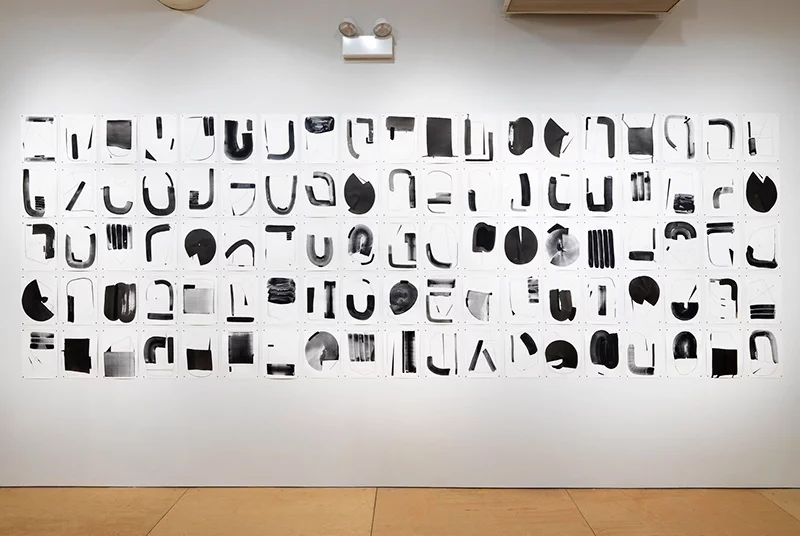
Torkwase Dyson
Torkwase Dyson uses an interdisciplinary approach to her work, drawing on her background in both painting and architecture. Using abstract paintings, sculptures, and installations, she investigates the idea of Black spatial liberation.
Informed by her studies of architecture, infrastructure, and the environment, Dyson often produces site-specific installations that pay homage to the cultural and historical significance of the places they are exhibited. With her artistic efforts, she challenges audiences to reflect on the nuanced histories and power dynamics that have shaped the built environment and to develop fresh ideas for Black spatial freedom.
I Can Drink the Distance: Plantationocene in 2 Acts, one of Dyson’s best known works, was completed in 2019. This installation, which includes a number of sculptural forms and abstract paintings that depict the terrain of the American South, tackles questions of accessibility to water and infrastructure in the context of Black freedom.

